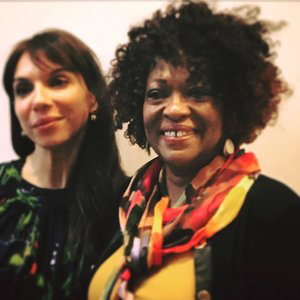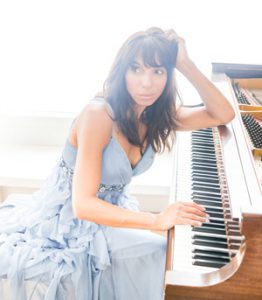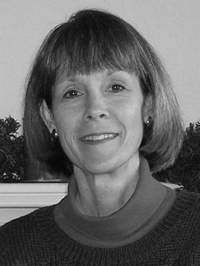Guest Blog by Lou Fancher.
Lara Downes is a critically-acclaimed American pianist who is creating a unique series of five-minute videos that feature women writers reading their work while Downes performs solo piano pieces by women composers.
Her Just Like a Woman series was inspired by Downes’ collaborations with former U.S. Poet Laureate Rita Dove. The two artists had worked together on a large-scale performance piece in 2009 which was later revised for Downes’ America Again album in 2016. Finding themselves on separate but overlapping tours in Akron, Ohio this year, Downes invited Dove to join her onstage to read.
“Rita came and performed her poem live with me,” says Downes in an interview about the series. “There was something so deep and personal about her being there and reading words that had inspired me for so long. I was struck by the way the music and words converged. That connection to a very powerful female figure gave me the idea to compose all female stories.”
Former U.S. Poet Laureate Rita Dove reads her poem SingSong, and Lara Downes performs Every Morning by composer Rachel Grimes, from her collection Book of Leaves.
As a mixed-race daughter of a Jamaican father who grew up in Harlem and a mother of Eastern European Jewish descent, Downes has learned that there is power in crossing boundaries.
“My life and musical experience have been determined by all of the different ways that I’m an ‘other,’ an outsider: bi-racial child, home-schooled outside of a traditional educational environment, immersed in music from the beginning,” she says. “For a long time I thought that was a negative. I’ve come to realize that my unawareness of boundaries, due in part to the haphazard, no-curriculum enthusiasm that guided my education, is a gift. I learned to learn from what was interesting to me.”
During her childhood in America and Europe, Downes began reading at the precocious age of two and took to the piano instantly. Because of disruptions caused by her father’s long illness that finally took his life when she was nine years old, music was a rare constant in a world with few regular routines.
As a classical piano student at San Francisco Conservatory she learned that stories filled with pain and perfection underscored the works of Bartok, Beethoven, Shostakovich, Chopin and other classical composers. As her learning circle widened to include exiled Jewish composers and 20th century African- American composers and vocalists, the music resonated more personally with her family history. Downes began to “give tribute to the holy ground” of contemporary jazz and pop artists like Billie Holiday, George Gershwin, Benny Golson and others.
Her most recent CD, American Again, brings rare attention to women composers Amy Beach, Florence Price and Angélica Negrón. It includes a panoply of straight, gay, rich, poor, white, black, Latino, male and female composers’ work.
But arguably, none of Downes’ projects has honored female voices as directly as the Just Like a Woman collection. Downes selects the writers using multiple means: the serendipity of tours coinciding led to Dove; a lifetime of reading and love of literature generates ideas of poets and writers to invite; a successful career as a solo artist and an active online presence means artists worldwide reach out to her or suggest colleagues.
The process is simple: contributing writers read and record their short works and submit MP3 files. Downes selects the compositions that are paired with the written words and performs the music on videos that blend text, imagery and closeups of her fingers on the piano keys. She edits and completes details of the videography herself. Videos are posted online every few weeks and are available on her website. To date, they include Dove paired with composer Rachel Grimes; and poet Safiya Sinclair paired with composer Sarah Kirkland Snider. Upcoming videos will feature poets and writers paired with composers Meredith Monk, Paola Prestini, Clara Schumann, Nina Simone and others. No one is paid; women are heard. Everyone is invited to listen.
Poet Safiya Sinclair reads her poem Hands from her collection Cannibal, and Lara Downes performs The Currents by composer Sarah Kirkland Snider. Hands is used by permission of the University of Nebraska Press. Copyright 2016 by the Board of Regents of the University of Nebraska.
Downes insists that music isn’t inherently female or male. Nevertheless, music shaped by a woman “digs deep” in her soul. “First, I love having a new sandbox to play in. And I’m collecting work by women, finding support from colleagues, calling attention to women composers without belaboring it, broadening the audience by integrating music and writing. It’s a time when women are coming to responsibility for getting our voices heard. It’s about women saying we’re here. It’s their stories and the value of them.”
Mentorship is both a challenge and a calling for Downes, whether she is serving as role model of professional independence for her two primary school-age children or she is demonstrating leadership to the up-and-coming musicians she instructs and inspires. Her solo career as a professional musician includes not only best-selling albums, but a tour schedule that keeps her on the road for weeks at a time. “I try not to collapse,” she says, in answer to the perennial “how do you juggle it all” question. “It’s in my experience to be problem solving, thinking big, working hard, making things that are beautiful.”
Which is lovely, but what about when a tour includes a red-eye flight or working 48 hours straight to fit in rehearsal, performance, recording, business calls and emails, press interviews and more? What happens when a meeting goes long while Downes is in her role as curator of the National Young Artists Program at the Mondavi Center for the Performing Arts at the University of California Davis?
“This is just the world today, where everyone is traveling fast. The arts have always been that way,” Downes says. Even so, she admits that having a family increases the rigors of her profession. Male colleagues, she has noticed, don’t “contort themselves to accommodate their families” as often as women do.
As for outright bias, Downes says, “Sure, there are areas where women are underrepresented. Look at concert repertoire and programming for any given orchestra or opera house. But I think we’re in a historical shift, and we will be hearing more and more work by women composers, today and going forward.” She suggests that the past is not the present and definitely must not hold back the future as women make their own opportunities. “The sisterhood is powerful. As women gain firm ground, mentorship has tremendous value. To look up and see someone who looks like you, it instills confidence.”
If Downes were dependent on playing piano concertos every night she might suffer more from bias. But she has deliberately established a unique path where she is able to “pull all my selves together.” Through her albums and videos she explores how race and gender feed into her work and self-understanding. She acknowledges that there is racism and sexism in the music business, but she has found a way to blunt their impact on her work. “The specific approach I crafted to music comes from a place that makes who I am positive . . . I’ve found a way to pull from the strengths of who I am.”
About the Author
Lou Fancher is a San Francisco Bay Area writer. Her work has been published by WIRED.com, Diablo Magazine, Oakland Tribune, Bay Area News Group, InDance, East Bay Express, Oakland Magazine, SF Weekly, San Francisco Classical Voice, and others.
She is a children’s book author, designer and illustrator, with over 50 books in print. Also a choreographer, ballet master and teacher, she coaches professional ballet and contemporary dance companies in the U. S. and Canada.
For more information, please visit her website at www.johnsonandfancher.com.




